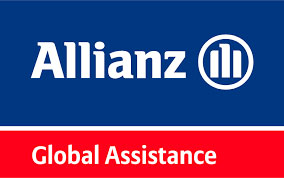
Talking insurance
Questions & Answers with Dan Keon, Allianz Global Assistance

Keon
This week, Canadian Travel Press is featuring the first part of an extended version of its popular Five Questions feature with Allianz Global Assistance’s Canadian vice president, market management, Dan Keon who offers our readers some insights on a range of key travel insurance issues at play in the market today.
1. The cancellation of out-of-country OHIP coverage, natural disasters, coronavirus and a host of other travel-related health issues will certainly impact on travel agents… could you talk about that and offer some advice to agents on how to handle these issues?
While these issues can unfortunately create disruption for travellers, one benefit is that they help raise awareness among Canadians of the need to obtain travel insurance. They also provide agents with an opportunity to introduce travel insurance into the conversation when booking a client’s trip.
 Regarding these issues specifically, it is important to note that coverage for out-of-country healthcare provided through provincial health plans was never enough to warrant forgoing travel insurance. In Ontario, for example, OHIP only covered 5-7% of out-of-country healthcare costs. This is why the Government of Canada has recommended all Canadians obtain travel medical insurance for trips abroad, even before these changes in Ontario were effective.
Regarding these issues specifically, it is important to note that coverage for out-of-country healthcare provided through provincial health plans was never enough to warrant forgoing travel insurance. In Ontario, for example, OHIP only covered 5-7% of out-of-country healthcare costs. This is why the Government of Canada has recommended all Canadians obtain travel medical insurance for trips abroad, even before these changes in Ontario were effective.
Agents should always suggest that their clients purchase travel insurance at the time of booking. Both agents and their customers also need to be aware of the latest travel advisories from the Government of Canada for their destination country, and how these advisories apply to their travel insurance coverage. For example, a travel advisory that’s issued after you’ve booked your trip and purchased insurance may be a covered reason under trip cancellation coverage. However, the intent of insurance is to protect against unforeseen events. This means that once an advisory is released, the issue in question (i.e. a natural disaster) becomes a known event, and policies purchased after the date of the advisory would no longer provide protection against that event.
It is important that clients understand these nuances, so they have a full understanding of what coverage is available to them.
2. Does this make travel insurance more important than ever? Can you talk about why this is?
Travel insurance has always been important, but, as we continue travelling in greater numbers all around the globe and airports and destinations become busier, the potential for travel disruptions can also increase. That’s why it’s crucial to protect your investment in a vacation with the full range of coverage options available, such as emergency medical protection, as well as benefits for trip cancellation, interruption and baggage loss.
In terms of recent world events, while they may make headlines, the risk of an unexpected injury or illness that causes the cancellation of a trip, or requires emergency medical treatment while abroad, is still more likely to disrupt travel plans than a natural disaster. This reality makes travel insurance a necessity regardless of what clients are seeing in the news.
3. Perceptions and misperceptions about travel insurance – can you offer a few examples?
Some travellers may be under the impression that their travel insurance covers every situation, or acts as an extension of their provincial healthcare plan, which it does not. Travel medical travel insurance is typically intended for sudden and unexpected medical emergencies while travelling. As such, it’s important for travellers to understand the intent of their policy, including whether there are exclusions related to any pre-existing or ongoing conditions you have been treated for before leaving Canada.
Secondly, some travellers tend to think of travel medical insurance in terms of the pure financial protection it offers against the high costs of medical care abroad. Perhaps less known are the extensive emergency assistance services that are included in most plans, which are invaluable when facing a medical emergency in an unfamiliar place.
These services can include referrals to qualified medical providers, arranging a medical evacuation from remote areas to the nearest facility that can deliver necessary care, monitoring of treatment, navigating legal and cultural barriers, arranging direct billing with the hospital on your behalf, and coordinating the complexities of a safe repatriation back to Canada. Having the care and support of a qualified medical team back in Canada in these moments that matter is often what clients remember and value most following a medical emergency abroad.
Being familiar with the types of assistance services available and the level of care and coordination that happens behind the scenes can be a powerful selling tool for travel agents when offering travel insurance to their clients.
4. How do consumers feel about travel insurance? Does that concern you?
Canadians are very aware of the need for travel insurance with 73% of travellers having some form of coverage in place for their trips last year. However, our research shows that many do not read their policies and, therefore, may not understand what is and isn’t covered. Agents play a key role in educating their clients on how travel insurance works and explaining the options available at the time of booking. To help give our agent partners more confidence when discussing travel insurance with their clients, Allianz offers our EASY program. EASY is a simple and essential learning and development tool that makes learning fun and helps agents better serve and advise their clients.
5. How should agents talk to their clients about the importance of travel insurance and why they need it when they travel?
Advising clients on travel insurance options should be a routine part of any travel booking. Clients spend hard-earned dollars on their holiday, so protecting their investment with trip cancellation coverage is a sensible choice. In terms of medical coverage, beyond the range of assistance services available, clients should understand there is a reason the Canadian government recommends travel medical insurance for all travellers – because provincial health plans don’t extend to travel abroad, and medical emergencies can happen to anyone regardless of age or length of trip.
With that said, agents will often encounter clients who have coverage already through other means. If the client is covered by a work benefits plan or a credit card, the agent should encourage their clients to contact their employer or credit card provider to confirm exactly what coverage they have in place and to make sure they fully read their policies. Not all policies are the same, with day limits, benefits and exclusions differing between providers and products. Agents can then help their client with addressing any gaps in coverage to ensure they’re properly protected for their trip.
6. What are some of the benefits to travel insurance that are not as well known?
Many people are not aware that there are many benefits beyond medical expenses abroad. For example, the benefit of flying a family member abroad to be with their ill or injured relative, and accommodation costs for a family member who may have to stay past the original return date with their ill or injured loved one. Also, our medical teams will liaise with the practitioners in other countries, so that the client fully understands what is happening without having to worry about translations and different procedures.
